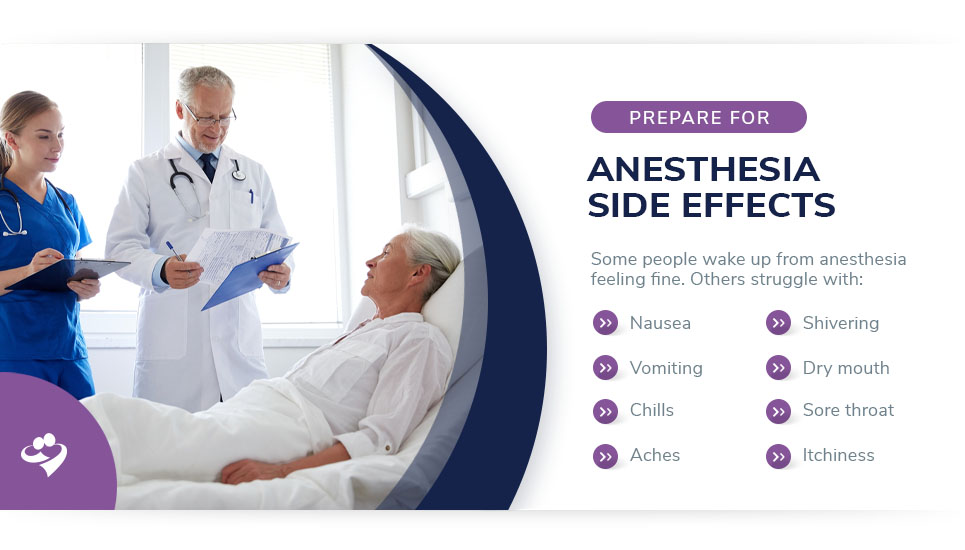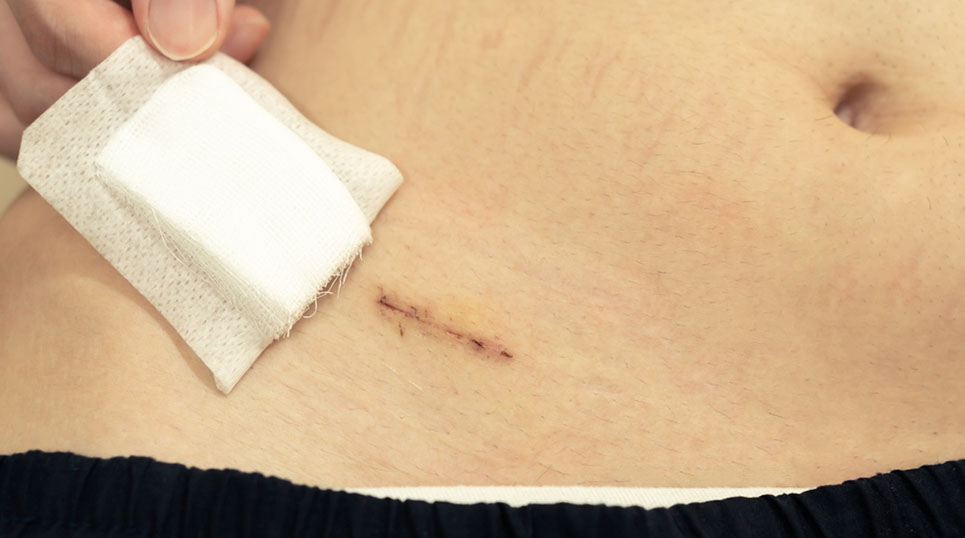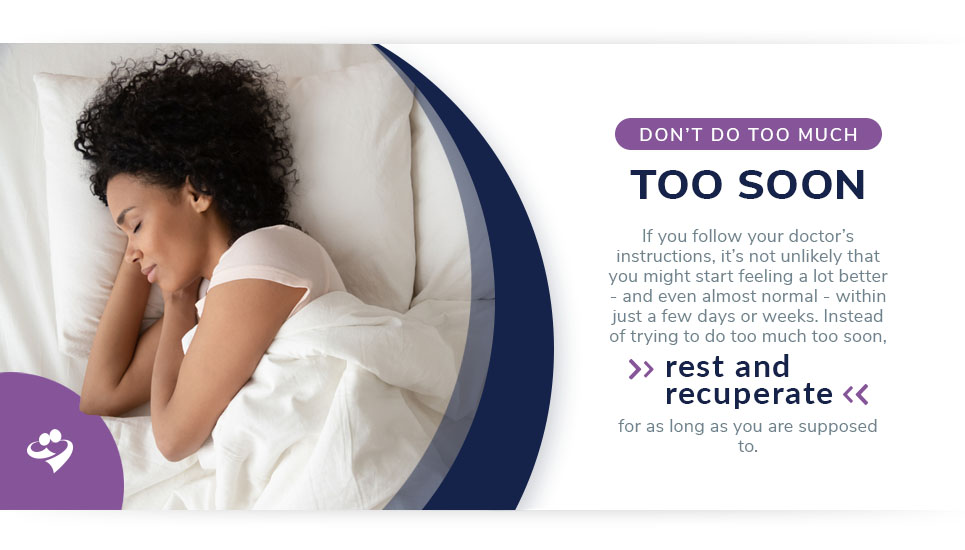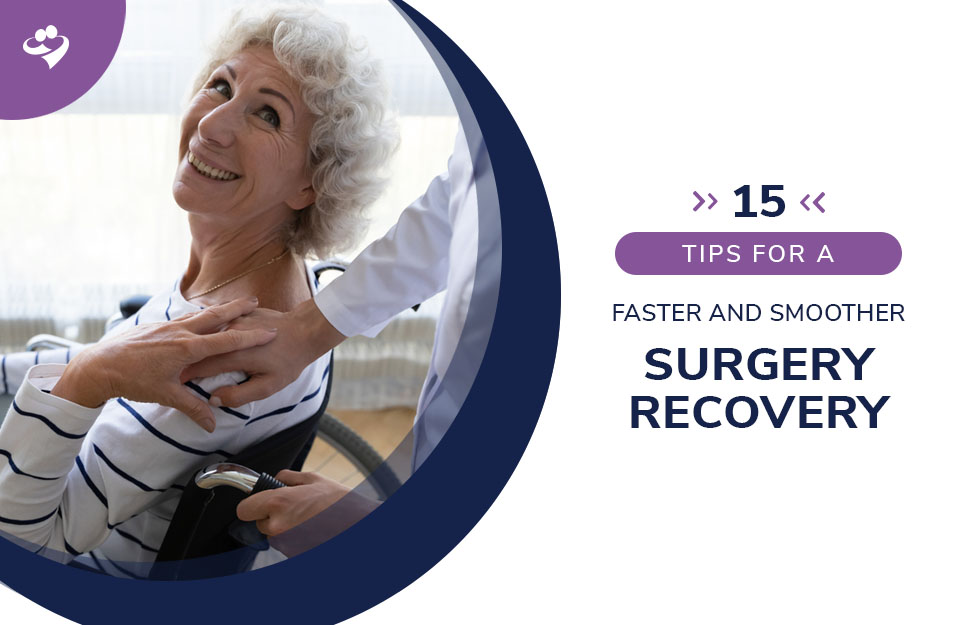15 Tips for a Faster and Smoother Surgery Recovery
Whether your surgery is a minor outpatient procedure or a major surgery, recovery from it is no small thing. Knowing the best practices for surgery recovery can contribute to reduced pain and faster healing, not to mention resuming your regular life. Whether this is your first surgery or you’ve had many procedures done before, you need to know what to expect after the surgery and how you can promote healing. Here are the top 15 tips you need to know for a faster and smoother surgery recovery:
Understand there may be a need for a longer hospital stay.
Some outpatient surgeries are so minor that you’ll be able to go home the same day. For other procedures, you’ll need to stay in the hospital overnight — or even for several days — so that you can be monitored by professional nurses and doctors. Even if you feel totally fine after surgery, staying in the hospital is important so that you can get help immediately if complications develop. They will monitor your vital signs, incision site, IV lines, bladder distention, lung clearance, level of consciousness and more to ensure that you are well on the road to recovery by the time you are discharged from the hospital.
Shop Hospital Clothes for Patients
Be prepared for anesthesia side effects.
General anesthesia, or anesthesia that puts you in a sleep-like state of unconsciousness, is used for more involved, longer surgery procedures. The procedure itself is very safe, but going under general anesthesia for any reason can have its own relatively mild side effects. Some people wake up from anesthesia feeling totally fine and have no issues recovering from it. Others struggle with nausea, vomiting, chills, aches, shivering, dry mouth, sore throat and itchiness. You might also be groggy and feel fatigued even though you’ve been unconscious for a long time, or a bit confused when you first wake up. These side effects are totally normal and rarely last longer than a few hours or days.
 Have home care set up.
Have home care set up.

It’s unlikely that you will be able to resume your normal activities directly after surgery, which means that you’ll need help with meal prep, cleaning, running errands and other chores. If you had more serious surgery, then you might also need help with basic tasks such as getting dressed, using the restroom and bathing. If your surgery was pretty routine, then your loved ones might be able to provide the help that you need. Have any temporary caregivers come with you to pre-op appointments if possible so they can get instructions straight from your doctor. For other, more involved surgeries, you might need to arrange for more professional help in the form of a home health aide or even a registered nurse.
Follow the doctor’s instructions.
Even if you start feeling better, be sure to keep following your doctor’s instructions no matter how redundant you think they are. Infections and complications can set in at any time, and slacking off can cause the wound to become contaminated or your recovery to be delayed. If you don’t understand why your doctor told you to do something, then ask them to explain and they will probably be happy to do so. Whenever you feel like letting something go, think back to why your doctor told you to do it in the first place.
Take care of the incision site.
Always wash your hands before and after washing or dressing your wound. In some cases, you may have tape over your incision site, in which case you’ll be instructed not to touch it until the tape falls off. In other cases, you may be instructed to wash and change your dressing regularly. Do not scrub the incision. Washing it with mild soap and water is typically more than adequate. Do not soak the area, as prolonged immersion in water softens the skin and can weaken the incision. For this reason, surgeons will usually recommend showers instead of baths and will also warn you to stay away from swimming. Do not pick at any scabs that form on the wound. Leave them until they fall off on their own.
 Rest as much as possible.
Rest as much as possible.

Sleep is your body’s way of promoting recovery, so you shouldn’t force yourself to go without sleep — especially in the first few days following the surgery. Not only does your body need sleep to heal, fatigue is also a known side effect of general anesthesia so you should sleep when you feel like it. You’ll probably have the urge to go to bed later and/or wake up earlier than you normally would, and you may also have the urge to take naps in the middle of the day. Listen to your body and pay attention to what it needs.
Keep the pain under control.
You will likely be given prescription strength medications to keep your pain under control in the first few days after surgery when it will be at its peak. Follow the instructions on the prescription in terms of how much to take and when to take it. Don’t wait until you’re in excruciating pain, as medication can take a while to build in your system. However, you also shouldn’t take excess doses or take them too close together either. You can also use over-the-counter non-steroidal anti-inflammatory drugs (NSAIDs) to manage mild to moderate pain once you finish off your prescription.
Monitor bowel movements.
Surgery can seriously mess up your bowel movements on a temporary basis. You’ll probably be instructed not to eat and drink in the hours prior to surgery, and you may not be able to resume your regular diet right after surgery either. Pain medications can also mess with your bowel movements. As a result, constipation is a relatively common side effect of surgery. Eating fiber-rich foods and drinking plenty of water can help encourage your bowel movements to return to normal. Your doctor might also prescribe stool softeners or laxatives. Diarrhea after surgery is also not unheard of, but you should let your doctor know if you’re experiencing it, especially if it’s accompanied by any other symptoms. You should also let your doctor know if any of your stool is an unusual color.
 Wear the right clothing.
Wear the right clothing.

While you might be glad to take off your hospital clothes before being discharged, you often can’t go right back to your regular wardrobe. You want to avoid tight, structured, stiff, non-breathable clothing right after your surgery. Instead, opt for loose, soft, breathable clothes made out of natural materials such as cotton. Your doctor may recommend that you wear specific post-surgery clothing, such as compression sleeves, to help combat swelling. You might also want to consider adaptive clothing if your mobility has been compromised by the surgery and you can’t get into your regular clothes. Post-surgery shoes can give you the traction you need while accommodating swollen, tender feet.
Cough and sneeze carefully.
You probably cough and sneeze multiple times a day without giving it a thought, but these two activities actually strain your body quite a bit. They can weaken surgical incisions or even cause them to open up, especially if they are located in the abdominal region. Your doctor or nurse will probably show you how to put pressure on your incision using your hand or a pillow whenever you cough or sneeze to keep it braced. Don’t stop yourself from coughing, though. It’s important to clear out your lungs and prevent pneumonia. While we’re on this point, you should also avoid jumping or lifting heavy objects, as both of these also strain the incision site.
Get moving, but do it gently.
Gentle physical movement is important to keep blood clots from forming in the days and weeks after surgery. Your doctor will likely recommend a little bit of movement once an hour as soon as you are able — even just getting up to go to the bathroom is beneficial. Once you have enough strength, going for slightly longer walks outside can help you build your stamina and further boost your blood flow. However, you should avoid more strenuous exercise until your doctor clears you to resume it. Jumping, crunching and other exercises can seriously strain your muscles and weaken the incision site, which you don’t want when your body is trying to heal itself.
Do the physical therapy exercises.
Speaking of moving around, some surgeries may involve physical therapy rehab in order for you to gain full mobility back. Keeping up with both your physical therapy appointments and your at-home exercise schedule is key for making a full recovery and regaining your quality of life. Physical therapy can be time-consuming and repetitive, but it’s so important for recovering from surgery so carve out time each day to do your exercises and focus on maintaining proper form.
 Don’t rush recovery.
Don’t rush recovery.

If you follow your doctor’s instructions, it’s not unlikely that you might start feeling a lot better — and even almost normal — within just a few days or weeks. At that time, you might be tempted to return to work and resume all your normal activities even though your recovery is supposed to last for longer. If you do, you will likely find yourself struggling with complications, including pain, diarrhea and more. Instead of trying to do too much too soon, rest and recuperate for as long as you are supposed to. Your body will thank you for it later!
Stick with follow-up appointments.
In a similar vein to the last tip, you should also stick to your follow-up appointments, even if your wound is healing well and you feel fine. However, follow-up appointments are about far more than simply whether or not your wound is healing (though that will be an important topic of conversation). They may need to adjust your medications, or confirm that the surgery did indeed fix your problem. They may also need to examine the incision site if it’s not readily visible — for instance, in the case of a vaginal hysterectomy. In short, follow-up appointments are a key part of post-surgery care and should not be skipped.
Know when to call the doctor.
Certain complications warrant an immediate call to your doctor — and sometimes a trip to the ER. Contact a medical professional immediately if you experience any of the following symptoms after surgery:
- Increasing pain, or pain that comes back after abating
- Fever over 100.4 F
- Pus or other foul-smelling discharge from the wound
- Swelling, pain or redness around the incision that doesn’t go away or gets worse
- Difficulty breathing
- Confusion, dizziness and/or fainting
- Unexplained pain in one or both legs (sign of deep vein thrombosis)
- No passing of gas or a stool for five days after surgery
- Ongoing diarrhea, constipation or vomiting
- Black, tarry stools (sign of bleeding in the digestive tract)
- Inability to tolerate food or drink

Image Credits
Syda Productions/shutterstock.com
Lifestyle Travel Photo/shutterstock.com
fizkes/shutterstock.com
Black_Kira/shutterstock.com
Fotos593/shutterstock.com





Comments
[…] then you may be new to helping someone recover from surgery. Here’s what you need to know about surgery recovery for elderly […]
[…] procedure, especially if you are an older adult. In fact, proper preparation is key for a smooth surgery recovery regardless of whether or not it’s elective. Here are seven things you need to know before you […]
[…] a very involved procedure. Talk to your surgical team about how much swelling to expect during surgery recovery and how many clothing sizes you should go up from your normal size. If you expect your size to […]